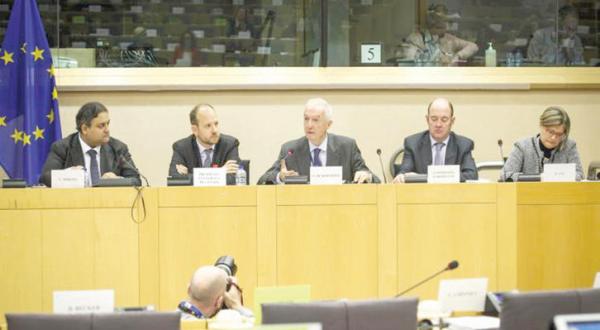The EU Counter-terrorism Coordinator Gilles de Kerchove has presented a report to the interior and justice ministers of EU countries about the “ISIS jihadists of Europe”, in reference to European fighters who joined the ranks of ISIS in Syria and Iraq and who have returned to Europe. Some experts in Brussels and other European capitals have described them as time bombs.
In remarks that he made during this month in Brussels, de Kerchove said that there are more than 2500 European fighters in the ranks of ISIS but that various European organisations release reports from time to time that include other figures in this regard.
The issue of fighters returning to Europe after having fought for ISIS has been an increasing problem for the last two years i.e. after the first of those who went to Iraq and Syria to fight for the terrorist organisation ISIS returned. Experts believe that many of these fighters who have returned to their home countries, especially to European countries, are time bombs that could explode at any time. A group of experts also believes that some of these ISIS fighters who have returned have done so in order to carry out terrorist attacks.
Whilst estimates suggest that 5,000 European fanatics have travelled to Syria and Iraq, some of them being killed in the fighting there, 1750 ISIS fighters have returned to their countries. According to the report presented by the EU Counter-terrorism Coordinator Gilles de Kerchove to EU ministers, fighters returning from Syria and Iraq where they fought for ISIS fall into two categories- the first is harmless and the second is highly trained. This highly trained category poses a potential threat to Europeans.
De Kerchove told Asharq Al-Awsat that “threats in Europe are now more complex and diverse than they were before, especially in the wake of the attacks that took place in Paris, Brussels and elsewhere. I expect that the threats will increase during the coming months, especially in the wake of what has happened in Mosul, Iraq, and Raqqa in Syria. Certainly, the collapse of the organisation ISIS will have an impact on Europe and other countries and perhaps waves of fighters may return to their countries and carry out terrorist attacks there. However, intensive work has been carried out in the last three years here in Europe, and we have tried as much as possible to reduce the weaknesses that existed before. If we talk about threats and vulnerabilities, we can say: “We have made remarkable progress, but at the same time, we must be extremely vigilant and prepared.””
